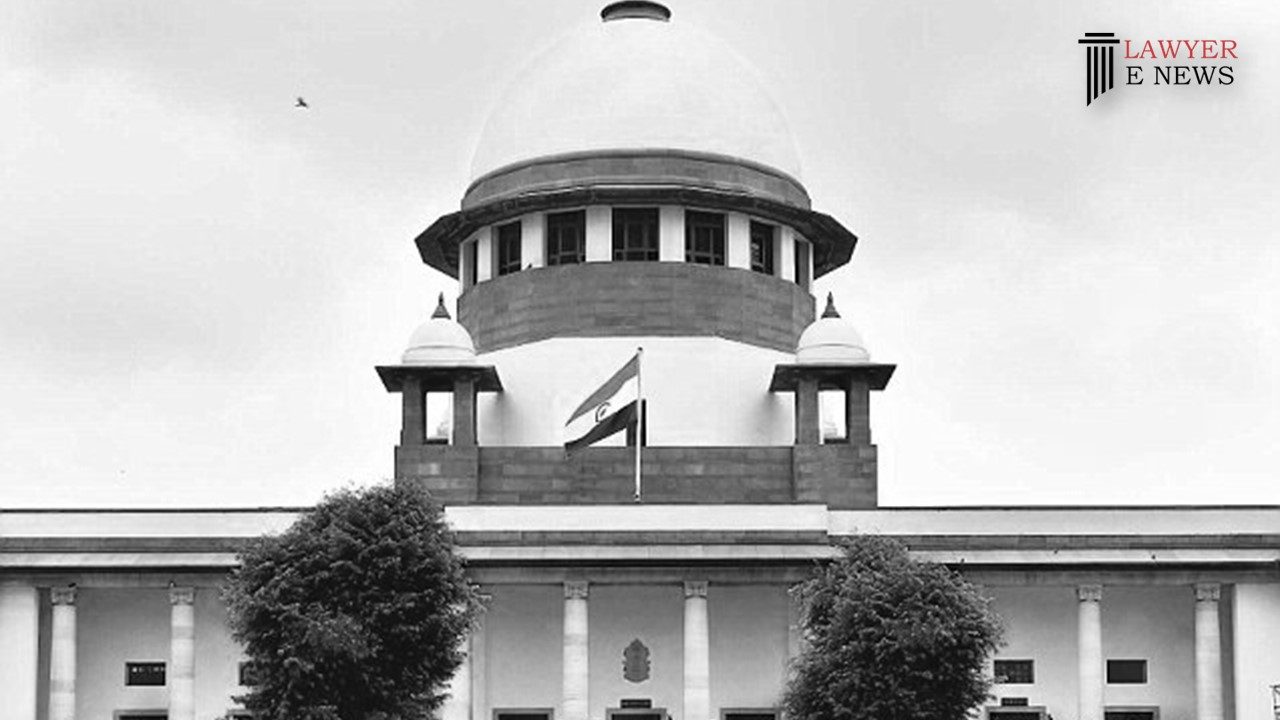-
by sayum
14 February 2026 2:22 PM



The Supreme Court of India has upheld the conviction of Shanmugasekar for the murder of Muthu, affirming the decisions of the trial court and the High Court. The bench, comprising Justices Abhay S. Oka and Ujjal Bhuyan, rejected the appellant's contention that the crime fell under Section 304 Part II of the Indian Penal Code (IPC), which pertains to culpable homicide not amounting to murder. The court emphasized that the evidence clearly established the intent to kill, validating the conviction under Section 302 IPC for murder.
The appellant, Shanmugasekar, along with five other accused, was embroiled in a family altercation stemming from a dispute over the payment of an electricity bill. The conflict escalated on September 28, 2016, leading to a violent confrontation. During the altercation, Shanmugasekar and his father, Kaari, attacked Muthu, who attempted to mediate the dispute. Muthu succumbed to injuries inflicted by a billhook, wielded by the appellant. The trial court acquitted four co-accused while convicting Shanmugasekar and Kaari under Sections 294(b), 302, and 324 IPC. The High Court upheld these convictions.
The Supreme Court meticulously examined the evidence provided by eyewitnesses, including close family members of the deceased. Despite minor discrepancies in their testimonies, the court found their accounts consistent and credible. Justice Oka noted, "As the ocular evidence of the eyewitnesses inspires confidence, minor discrepancies in their evidence regarding the exact time of the incident are not sufficient to discard their testimony."
The appellant argued that the altercation was spontaneous and lacked premeditation, suggesting the crime should be considered under Section 304 Part II IPC. However, the court rejected this argument, emphasizing that the appellant's act of fetching a weapon demonstrated a clear intent to inflict serious harm. "If there was no intention on the part of the appellant to cause bodily injury to the deceased, there was no reason for him to go back to his house and bring the weapon," the judgment stated.
The court highlighted that the appellant's actions did not fall under the exceptions to Section 300 IPC, which would reduce the offense to culpable homicide. The judgment observed, "The deceased had come to the spot only to resolve the fight among the family members of the appellant. Hence, it cannot be said that there was a sudden and grave provocation due to any act on the part of the deceased."
Justice Oka remarked, "The medical opinion is that the deceased died due to shock and bleeding on account of the chest injury and head injury. Therefore, there is no reason to interfere with the view taken by the courts that the offence punishable under Section 302 of IPC was proved beyond reasonable doubt."
The Supreme Court's decision to uphold the conviction underscores the judiciary's commitment to ensuring justice in cases of violent crimes. By affirming the lower courts' findings, the judgment sends a clear message about the importance of intent and the credibility of eyewitnesses in determining the severity of an offense. This ruling is expected to reinforce legal standards for evaluating evidence and intent in cases involving familial disputes that escalate to violence.
Date of Decision: July 10, 2024
Shanmugasekar vs. The State of Tamil Nadu
